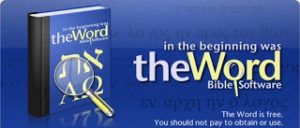Getting more out of the Bible
Suggestions for every stage
How do I get started?
Find a quiet place where you will be undisturbed. Carve out time each day when your mind is uncluttered (morning is often best) to read the Bible and pray.
Quiet Time Basics
- Pray for God’s help to learn from his Word.
- Read part of the Bible. Use the same physical Bible each day; it helps you to find your way around.
- Write down what you have learnt
- About God
- About how we are to trust and obey God
- Pray about what you have learnt and for other people
- The acronym ACTS can help structure and balance your prayers: Adoration (praise God for who he is), Confession, Thanksgiving and Supplication (requests).
Quiet Time Helps
- Create a weekly prayer list of people to pray for each day
- Print out a reading scheme and tick off what you have read each day
- Use the Oxygen Quiet Time Diary with reading scheme, prayer list and space for daily notes in one handy booklet.
- ‘The Bible Book by Book’ gives a straightforward overview of each one.

Refreshing your Quiet Time
Often we set off a Quiet Time reading scheme with good intentions. Then we miss a day, get behind, get down about it and give up. Or we keep going methodically but things just seem very dry. Here are some suggestions to freshen things up.
Alternative Quiet Time ideas
- Change the pace. Try reading several chapters at once. Many New Testament letters can be read in one or two Quiet Times, giving you a big picture. Or try writing out a few verses (this works well with Psalms) and meditating on each phrase.
- Read and/or pray out loud. This used to be normal and can really help concentration.
- Look up cross references to see how other passages shed light on the one you are reading.
- Use a devotional commentary (but make sure you’ve read and thought about the passage yourself first). Some suggestions are found here.
Alternative Quiet Time resources
- The Prayer Mate app helps you to create and manage large prayer lists and download helpful material.
- The Valley of Vision and Spurgeon’s Prayers Personalised provide material to stimulate deeper prayers.
- The ‘Journible’ series of notebooks provides an opportunity to create your own copy of the Scriptures like Israel’s kings (Deut 17:18); you can also copy the idea with your own notebooks!
How can I study a passage?
Whether studying a passage to lead a church Bible Study, a ladies’ study or a Sunday School lesson, most reach the same conclusion. We gain far more than we feel we are able to communicate. Every believer has the Spirit within them to illuminate God’s Word, so every believer can study the Scriptures for themselves. But how can we do this? Here are some suggestions.
Four key principles
The Bible is fully human
Bible Study has one basic question: what does this passage teach? What point was the human author making (his message) and why (his purpose)?
1) A word means what the context says it means. Instead of reaching for a dictionary, we ask, for instance: what does ‘law’ mean in this passage?
2) Choice implies meaning. If the author paints a picture we ask: what’s the point he’s making? If the author uses a striking phrase, or unusual word, we ask: why did he do that?
The Bible is fully divine
Since 66 individual books make up one seamless whole:
3) Scripture interprets Scripture. The clearer passages (to us) to interpret the less clear.
4) We don’t just read the Scriptures; we must let the Scriptures read us. Believing Bible Study places our hearts under the searching scrutiny of God’s Word. Unless our Bible Study leads us to reorder our thinking and lives it is futile.
Commentaries and other resources
Ink
Printing out a passage and annotating it, or copying it out phrase by phrase helps us chew over a passage and discern how different parts fit together. It helps us spot repeated words, the climax in a narrative or the logical argument in epistles.
Commentaries
The best modern commentaries are recommended here and here. Modern commentaries are good on structure and analysing the human author. The best (and free!) older commentaries are recommended here. Older commentaries are generally better on the divine author, pointing to Christ and devotional application. Reading both older and modern helps to gain a more balanced understanding of the Scriptures.
Classic whole Bible commentaries by Matthew Henry, Matthew Poole and John Gill are very helpful. Calvin’s commentaries are probably better than his more famous Institutes, though not covering every book. Robertson’s Word Pictures are useful for New Testament analysis.
Bible Study Software
Free Bible Software (Word with modules and Esword with modules) are very useful. A wealth of top older commentaries can downloaded. Searching by Strong’s number allows you to see how a Hebrew or Greek word has been translated in different context. There are free Bible Dictionaries, Maps and aids to Bible Study like Young’s Literal Translation.
How can I dig deeper?
The more we study the Bible, the more we realise we don’t know. Getting to grips with different passages often makes us hungry to understand more of big picture aspects such as:
- What is the distinctive message of different books?
- What are the principles of interpreting Scripture?
There and then to here and now
Steps to confident application
(1) What was the message there and then to the original audience of a particular book? e.g. Israel in the wilderness, Israel in exile, Christians in Corinth.
(2) What are the timeless truths in that message with regard to God and to us as his people?
(3) How do these timeless truths apply to us here and now?
Identifying timeless truths
Understanding big themes in Scripture helps us discern what applied there and then, and what applies here and now. For example
(1) Understanding how the OT covenants of promise were similar to and different from the New Covenant helps us read the Old Testament better.
(2) Typology encourages us to see, for example, prophets, priests and kings (where they don’t sin) as pictures of Christ
Digging Deeper Resources
Bible Book Introductions
Richard Pratt (a Presbyterian) has made his helpful introductions to each book of the Bible available freely online.
Old Testament History
Old Testament scholars with a robust view of Scriptural authority are rare. In Kingdom of Priests, Eugene Merrill helpfully deals with issues of chronology, such as the overlapping reigns of some of the kings of Israel and Judah. He compiles the Biblical data and demonstrates how it interfaces with current archaeological data.
Biblical Interpretation
The remarkable richness in the Bible with its different genres of literature and its nature as God’s unfolding revelation can stretch the reader. Principles of interpretation (hermeneutics) are important. An invitation to Biblical Interpretation is very helpful in delving deeper for serious study.


